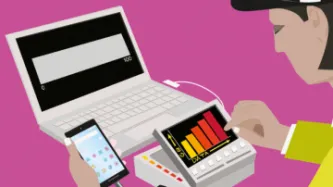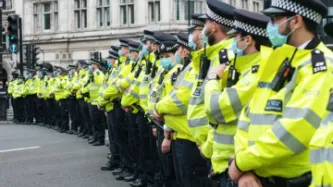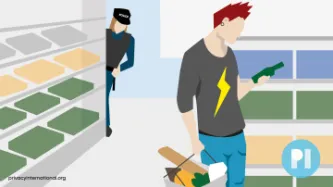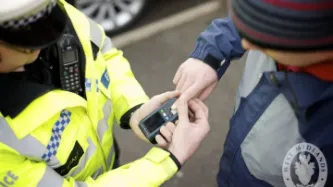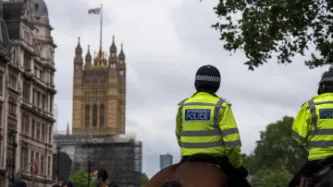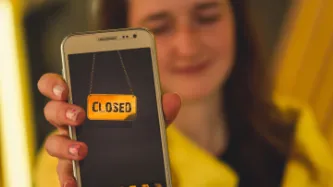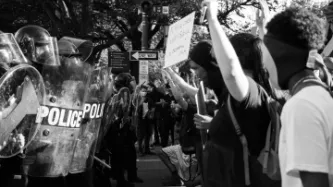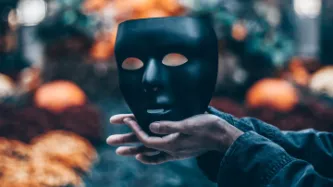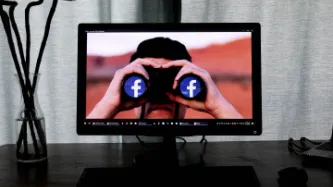Search
Content type: News & Analysis
The Police, Crime, Sentencing and Courts (PCSC) Bill is currently being scrutinised by numerous civil society organisations such as Amnesty International UK and Liberty for its damaging impacts on peaceful protests, however it also contains important provisions regarding when, if and how the police and other governmental authorities can extract data from your phones and other electronic devices.
Chapter 3 of the PCSC Bill is a legislative response to the UK's Information Commissioner's Office…
Content type: News & Analysis
The College of Policing public consultation concerned the new Code of Practice in relation to the way information is managed and recorded in the Police National Computer (PNC), Police National Database (PND) and the forthcoming Law Enforcement Data Service (LEDS).
PI and Open Rights Group (ORG) believe that the way police records and information are managed, stored and disposed of can pose serious threats to privacy and other fundamental rights. Therefore they must not only be subject to strong…
Content type: Report
Privacy International has released a report summarising the result of its research into the databases and surveillance tools used by authorities across the UK’s borders, immigration, and citizenship system.
The report uses procurement, contractual, and other open-source data and aims to inform the work of civil society organisations and increase understanding of a vast yet highly opaque system upon which millions of people rely.
It also describes and maps…
Content type: Long Read
As more and more of us feel compelled to cover our faces with masks, companies that work on facial recognition are confronted with a new challenge: how to make their products relevant in an era where masks have gone from being seen as the attribute of those trying to hide to the accessory of good Samaritans trying to protect others.
Facewatch is one of those companies. In May 2020, they announced they had developed a new form of facial recognition technology that allows for the…
Content type: News & Analysis
The Law Enforcement Data Service (LEDS) is a unified, common interface to a new mega-database currently being developed by the Home Office National Law Enforcement Data Programme (NLEDP). We believe that the development of the programme poses a threat to privacy and other rights and must be subjected to strong oversight, safeguards, and transparency measures.
As we explained in our analysis, the data in LEDS is vast, ever-increasing, worryingly mixes both evidential and intelligence material –…
Content type: Long Read
The Law Enforcement Data Service (LEDS) is a unified, common interface to a new mega-database currently being developed by the Home Office National Law Enforcement Data Programme (NLEDP).
It might not sound like the most exciting thing in the world (and it isn't!) - but it will have a profound impact on policing and surveillance in the UK for generations.
We believe that the development of the programme poses a threat to privacy and other rights and must be subjected to strong oversight,…
Content type: Examples
UK police were almost seven times more likely to issue fines to black, Asian, and minority ethnic people than white feel for lockdown infractions. The exact figures varied around the UK; in Cumbria, which is mostly white and where people from a BAME background are more likely to be visitors, it was 6.8, while in Lincolnshire and Avon and Somerset it was 4.4 and in West Midlands it was 1.6. The National Police Chiefs’ Council said it had commissioned a detailed statistical analysis of the force-…
Content type: Press release
Today, the ICO has issued a long-awaited and critical report on Police practices regarding extraction of data from people's phones, including phones belonging to the victims of crime.
The report highlights numerous risks and failures by the police in terms of data protection and privacy rights. The report comes as a result of PI’s complaint, dating back to 2018, where we outlined our concerns about this intrusive practice, which involves extraction of data from devices of victims, witnesses…
Content type: Long Read
In December 2019, the Information Rights Tribunal issued two disappointing decisions refusing appeals brought by Privacy International (PI) against the UK Information Commissioner.
The appeals related to decisions by the Information Commissioner (IC), who is responsible for the UK’s Freedom of Information regime, concerning responses by the Police and Crime Commissioner for Warwickshire and the Commissioner of Police for the Metropolis (The Metropolitan Police) to PI’s freedom of information…
Content type: News & Analysis
Yesterday, Amazon announced that they will be putting a one-year suspension on sales of its facial recognition software Rekognition to law enforcement. While Amazon’s move should be welcomed as a step towards sanctioning company opportunism at the expense of our fundamental freedoms, there is still a lot to be done.
The announcement speaks of just a one-year ban. What is Amazon exactly expecting to change within that one year? Is one year enough to make the technology to not discriminate…
Content type: Examples
The Turkish Health Ministry's Pandemic Isolation Tracking Project is using mobile device location data to track patients diagnosed with COVID-19 and ensure they obey the government's quarantine requirements. Violators will be sent warning messages and their information will be shared with the police if they do not return to isolation. Law enforcement officers can access individuals' information during road stops. Before launching the system, the Communications Directorate obtained permissions…
Content type: Examples
On April 20 Hong Kong authorities arrested some of the most prominent anti-China activists. The need to clear the streets to protect public health during the COVID-19 outbreak provided the authorities an opportunity to cripple the protest movement that had spread across the country beginning in mid-2019. Chinese officials in Hong Kong have also called for improved national security education in the city and for the passage of a national security law giving law enforcement and prosecutors…
Content type: Examples
Ten Ugandan police officers were charged with torture after allegedly caning 38 women and forcing them to swim in mud in Elegu, a town in the northern part of the country. Police have also arrested 23 people during a raid on a shelter for homeless lesbian, gay, bisexual and transgender youth, accused them of disobeying orders by remaining in the shelter, and charging them with a negligent act likely to spread infection or disease.
Source: https://www.bbc.co.uk/news/world-africa-52214740…
Content type: Examples
Tunisian authorities have sent humanly remote-controlled robots onto the streets to enforce the country's lockdown; videos shared on social media show the robots challenging Tunisians in the country's capital to ask if they are aware of the rules and demand where they are going. The robots, known as "P-Guard" and made by Enovaro Robotics, are equipped with infrared and thermal cameras as well as a laser telemetry system.
Source: https://www.middleeasteye.net/news/coronavirus-tunisia-lockdown-…
Content type: Examples
Tanzania's Communication Regulatory Authority punished three TV stations for airing content that was "misleading and untrue" about the government's strategy on fighting coronavirus. Critics believe that TCRA objected to a report that criticised President John Magufuli for saying that churches should remain open on the basis that "coronavirus cannot survive in a church".
Source: https://www.bbc.co.uk/news/world-africa-52214740
Writer: Dickens Olewe
Publication: BBC
Content type: Examples
Filipino officials are subjecting people caught breaking lockdown rules to humiliating and abusive punishments such as locking them in cramped dog cages or forcing them to sit outside in the midday sun, similar to tactics in China, where authorities have been filmed tying violators to pillars and berating them, and India, where footage has shown police beating alleged violators while forcing them to do push-ups in the street. Among reported incidents, a local official in Santa Cruz,…
Content type: Examples
On April 5, Azerbaijan tightened the quarantine regime imposed on March 24 to require residents under 65 to receive permission via an SMS message before leaving their homes. Only three reasons are allowed: to visit the doctor, to visit a pharmacy, shop, bank, or post office, or attend a relative's funeral. Sending the message is free; it must include the resident's personal ID number and their reason for leaving the house. Permits grant a two-hour window, and residents can only have one per day…
Content type: Examples
In early April, police in a UK park violated their own social distancing guidelines to order ITN journalist Michael Segalov to go home when he began filming the same police appearing to harass a distressed woman. Segalov's solicitors at ITN followed up by filing a letter of complaint demanding an investigation and a public apology.
Source: https://www.vice.com/en_uk/article/epgegj/police-power-trip-coronavirus-lockdown
Writer: Simon Childs
Publication: Vice
Content type: Examples
The Venezuelan government has ramped up quarantine enforcement in the Catia barrio in Caracas by issuing permits that allow only one family member out at a time and only before noon, and setting up 40 checkpoints. Many residents had flouted regulations in the barrio, home to 400,000 of Venezuela's poorest inhabitants; residents reported that many families had spent weeks without running water and without receiving government handouts of food.
https://in.reuters.com/article/us-health-coronavirus…
Content type: Examples
On April 2 Peruvian president Martín Vizcarra issued a controversial rule that men and women must observe quarantine on different days: men may leave their homes on Mondays, Wednesdays, and Fridays, while women may leave only on Tuesdays, Thursdays, and Saturdays. No one is allowed out on Sundays. Some critics are concerned that the plan will lead to disproportionate harassment of LGBTQ+ people because the police are instructed to stop people based on gender presentation. The purpose, the…
Content type: Examples
A Telegram user reports that Uzbekistan authorities are confiscating mobile phones, audio/video equipment, bank cards, and other storage media from those in quarantine, claiming that the move is necessary to limit the spread of fear and disinformation about the virus.
Source: https://thediplomat.com/2020/03/how-is-central-asia-handling-covid-19/
Writer: Colleen Wood
Publication: The Diplomat
Content type: Examples
After police in Bellevue, WA were inundated with calls from local residents reporting suspected violations of the state's week-old stay-at-home order, they asked the public to use the MyBellevue app instead, to keep 911 lines open for emergencies. The police added that they have no plans to charge or arrest violators, but will visit reported hot spots in order to educate the public about the rules. Residents are required to remain at home but there are exceptions for essential industries, trips…
Content type: Examples
The UK's Home Office has granted police in England new powers to enforce lockdown rules for six months, to be reviewed every three weeks. The police can now: order people to disperse or leave an area; ensure parents are doing all they can to top their children from breaking the rules; issue a £60 fine, lowered to £30 if paid within 14 days; and issue a £120 fine for second-time offenders, to double on each further repeat offence. Non-payers can be taken to court, where magistrates can impose…
Content type: Examples
Spanish police are using drones to warn people to stay indoors apart from necessary trips after seeing a spike in COVID-19 cases. Human officers control the drones and relay via radio warnings to people to leave public parks and return home.
Source: https://www.businessinsider.com/spanish-police-using-drones-to-ask-people-stay-at-home-2020-3
Writer: Charlie Wood
Publication: BusinessInsider
Content type: Examples
On March 9, SK Telecom began providing South Korea's Gyeongbuk Provincial Police Agency with its Geovision population analysis service and GIRAF platform. The company claims that the combination can analyse mobile geolocation data across the country in real time, create visualisations, and show how many people are in 10x10 metre lattices, enabling police to send officers where they're needed to enforce distancing measures. The company is in talks with the Korean National Police Agency to expand…
Content type: Examples
On March 24 the German Bundestag passed a comprehensive amendment to the Infection Protection Act that authorises the Federal Ministry of Health to implement measures for medical care without the consent of the Federal Council. These include the ability to impose curfews and travel restrictions, override patent protection for medical products, and issue ordinances creating other exceptions to the law. The Federal Data Protection Commissioner criticised the proposals because he doubted whether…
Content type: Examples
The Western Australia state police force is using drones to deliver audio warnings to enforce the quarantine restrictions placed on some individuals and sending more than 200 officers to patrol the streets to break up gatherings and enforce social distancing in parks, beaches, and cafe strips. The state's premier, Mark McGowan, admitted the measures were extreme, but felt they were necessary to send the message to residents. Police have been granted greater powers to charge people if they…
Content type: Report
On 12 December 2018 a member of Lancashire Police Department UK told viewers of a Cellebrite webinar that they were using Cellebrite's Cloud Analyser to obtain cloud based 'evidence'. In response to a Freedom of Information request Hampshire Constabulary told Privacy International they were using Cellebrite Cloud Analyser.
They are not alone. In Cellebrite's 2019 Annual Trend Survey, Cellebrite found that law enforcement is increasingly using 'cloud extraction.' But the…
Content type: Examples
Together with Norwegian company Simula the Norwegian Institute of Public Health is developping a voluntary app to track users geolocation and slow the spread of Covid-19. Running in the background, the app will collect GPS and Bluetooth location data and store them on a server for 30 days. If a user is diagnosed with the virus, its location data can be user to trace all the phones that have been in close contact with the person. Authorities will use this data to send an SMS only to those phones…
Content type: Examples
The Local Government Association has argued that councils should not have to comply with freedom of information requests during the coronavirus crisis. Greater Manchester police followed suit, saying that police in non-critical roles were being reallocated to operational policing and would not answer FOI requests "until further notice".
Source:
https://www.theguardian.com/politics/live/2020/mar/23/uk-coronavirus-live-news-latest-boris-johnson-minister-condemns-people-ignoring-two-metre-…
